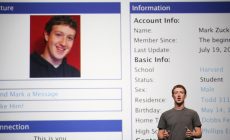Facebook To Begin Charging For Messages
- Posted on
- Comment
 Soon, rather than later, your favorite facebook will begin charging rates of up to 15 dollars to contact people outside their friends’ network.
Soon, rather than later, your favorite facebook will begin charging rates of up to 15 dollars to contact people outside their friends’ network.
If you’re in the habit of sending messages to people who’re not your friends, then it’s safe to say that this is one habit which is going to cost you.
This cost was originally reserved for messages to celebrities, and high net-worth people on the site who’re in very high demand, hence the cost for reaching them, however, its extension would now reach anyone who’s not a friend.
The website has hitherto been free for anyone on the site, with messages to non-friends going to the “other” email box, and are treated as spam. . .
. . . Not anymore. . .
These latest changes will allow users to pay to prioritize their emails, sending them directly to the main inbox of their prospective friends.
And if you want to grab the attention of your idol or favourite star/celebrity, then you’re going to have to pay more, with the charge scaled down or up depending on the level of popularity of the star.
Say you want to contact Barack Obama for instance. . . well, you’d expect to pay a whole lot more for that cookie.
Facebook says this idea is designed to prevent spam being sent to users of the network, but analysts fear that it might mark the start of a more entrenched payment scheme for the social media site.
In other words: They fear we might begin paying for facebook in the near future.
Hear them (A spokesman for facebook): “The system of paying to message non-friends in their Facebook inbox is designed to prevent spam, while acknowledging that sometimes you might want to hear from people outside your immediate social circle.
“We are testing a number of price points in the UK and other countries to establish the optimal fee that signals importance. Part of that test involves charging higher amounts for public figures, based on the number of followers they have.
“This is still a test and these prices are not set in stone.”
Experts believe that by getting consumer’s credit card details for small purchases now, it means that they will be able to attract greater revenue in the future.
Olly Mann, a gadget columnist, said: “This is probably a prelude to something much more substantial.
“If they can charge for smaller features their hope is that they can start charging for main features later on.”
Story Source: SkyNews










 (Selorm) |
(Selorm) |  (Nana Kwesi)
(Nana Kwesi)